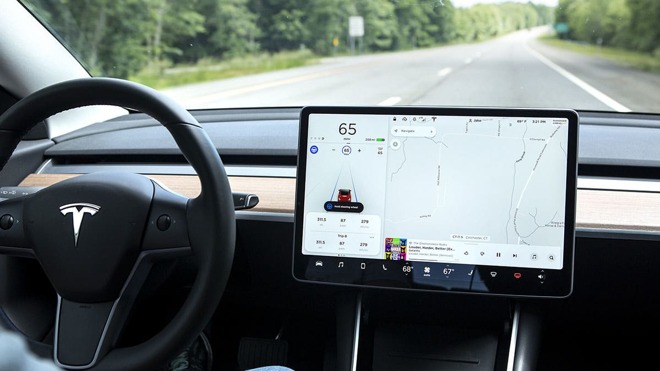Tesla requests iCloud data for engineer who allegedly stole Autopilot secrets
Tesla has subpoenaed Apple for access to the iCloud data of an engineer who allegedly stole thousands of Autopilot source code files right before leaving to work at XMotors.ai, the U.S. research branch of China's Xpeng.

The ex-Tesla engineer, Guangzhi Cao, has already acknowledged uploading copies of Autopilot source code to his personal iCloud account, Bloomberg said in a report this week. He nevertheless claims to have done nothing wrong, saying he didn't make use of the data and has tried to scrub it from his personal devices. Cao and his lawyers have even offered to provide forensic copies of devices Tesla wants to inspect.
Apple is likely to comply with the subpoena as long as it meets legal standards. July 2018 saw prosecutors charge an engineer from Apple's self-driving program, Project Titan, with stealing trade secrets in advance of joining Xpeng. The case is still ongoing as the engineer has pleaded not guilty.
Autopilot is Tesla's branding for the self-driving systems in cars like the Model 3 and Model S. The company's AI has yet to achieve full independence, but can already park, navigate highways and change lanes with little human help.
Apple's self-driving plans remain nebulous. The company has been performing road tests and recently bought out self-driving car startup Drive.ai, but details on product integration remain scarce. A finished vehicle could hit roads in 2023 or later, or not at all.

The ex-Tesla engineer, Guangzhi Cao, has already acknowledged uploading copies of Autopilot source code to his personal iCloud account, Bloomberg said in a report this week. He nevertheless claims to have done nothing wrong, saying he didn't make use of the data and has tried to scrub it from his personal devices. Cao and his lawyers have even offered to provide forensic copies of devices Tesla wants to inspect.
Apple is likely to comply with the subpoena as long as it meets legal standards. July 2018 saw prosecutors charge an engineer from Apple's self-driving program, Project Titan, with stealing trade secrets in advance of joining Xpeng. The case is still ongoing as the engineer has pleaded not guilty.
Autopilot is Tesla's branding for the self-driving systems in cars like the Model 3 and Model S. The company's AI has yet to achieve full independence, but can already park, navigate highways and change lanes with little human help.
Apple's self-driving plans remain nebulous. The company has been performing road tests and recently bought out self-driving car startup Drive.ai, but details on product integration remain scarce. A finished vehicle could hit roads in 2023 or later, or not at all.

Comments
SHOCKED! /s
Here is what’s been happening to many industries which firms from China are keen to make leapfrog advancements on:
1. Using high remuneration packages to attract key engineers to join them;
2. Tapping into the knowledge of these engineers for a short time frame (1-2 years) while transferring those knowledge to their own engineers.
The above has happened to semiconductors industry for years and that’s how they leapfrogged into competitiveness against existing tech giants.
Google/Amazon are worse than these Chinese companies. That doesn't mean these Chinese scumbags aren't also scumbags.
It also misunderstands the impact of culture - Americans expect all countries to adhere to the current understanding of intellectual property ownership. This appears to be wrong if we look at the history of the world: in recent terms, many English speaking countries have different limits on copyright time period (public domain) and what rights non-owners have (fair use), what's OK in England or Australia would not be OK in America, for example. On a longer timeline, compare with the native Americans who didn't always have a concept of exclusionary land ownership vs the colonists.
For China, Shenzhen manufacturers see hardware and product design as something that can be borrowed freely and altered. Success in business comes down to speed and execution, not originality. Re-iterating or copying is part of the culture, and seen as an opportunity for improvement on the original, not theft. The best way to avoid copying is to make the costs or production too high, through expensive machines required to produce, expensive materials, or binary software running on boutique hardware. And even then, it's not perfect.
https://www.wipo.int/pressroom/en/articles/2019/article_0004.html
A lot can change in two decades as this rumour might highlight:
https://www.yicaiglobal.com/news/apple-to-pay-hundreds-of-millions-of-dollars-in-patent-royalties-to-huawei-every-year
With this kind of thinking you deserved it I guess.
I have lived in many third world countries and almost everywhere people under age 10 knows what stealing is. Everywhere but here it seems.
All Chinese nationals employed by American companies should obviously be placed under increased scrutiny to ensure that they are not spies working for their motherland.
🤦🏾♂️